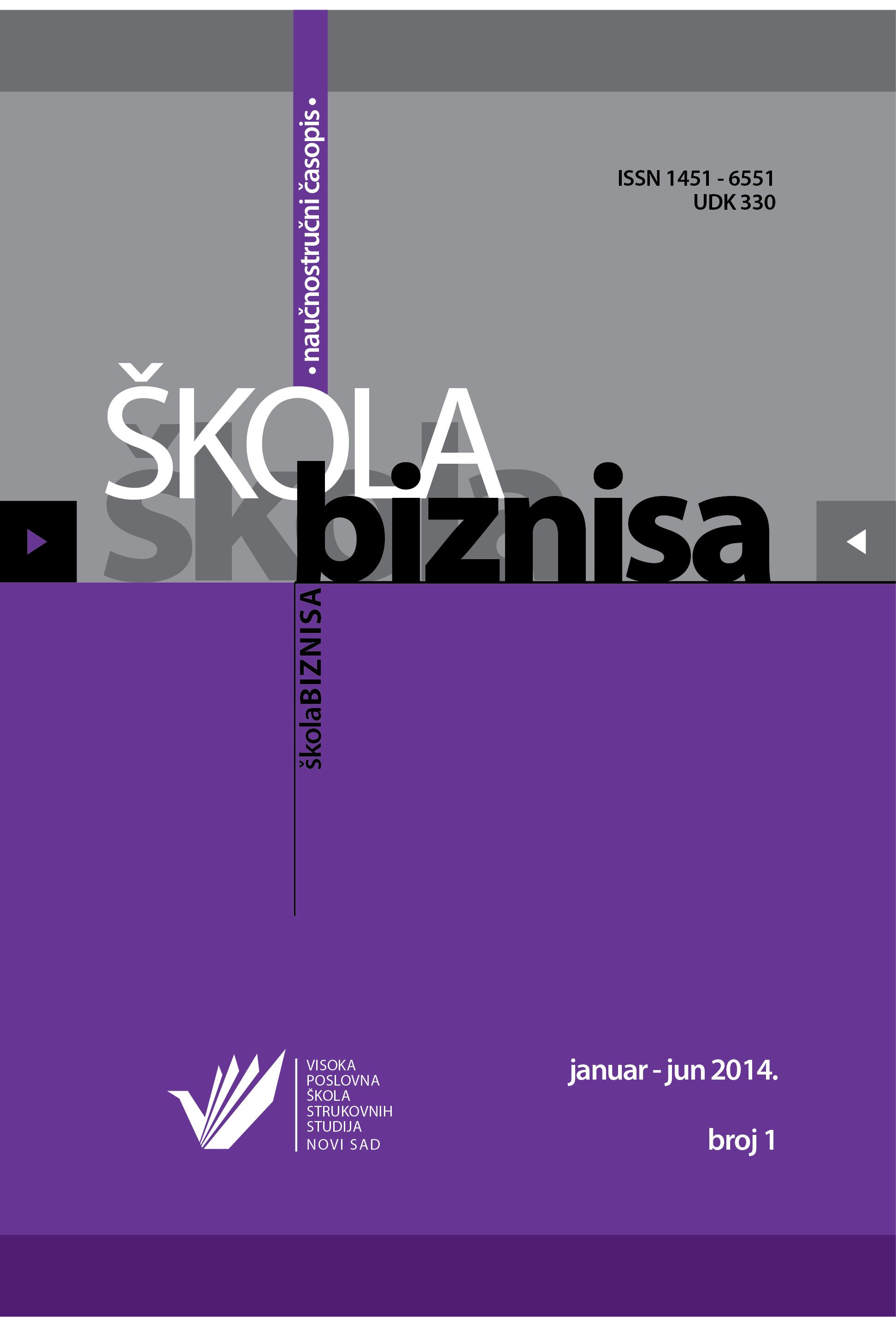OPINIONS AND BEHAVIOR OF STUDENTS IN SOCIAL ASPECTS OF INTERNET USE IN SERBIA AND SLOVENIA
Abstract
Rapid involvement of Internet infrastructure and services brought a lot of new products based on information and communication technologies. In the focus of world’s social interest at this time are social networks and WikiLeaks and their abuse. In this paper authors analyze opinions and behaviour of students at Novi Sad Business School, Serbia, and Faculty of Organizational Sciences in Kranj, Slovenia. This research focuses on different kinds of abuse of social networks and WikiLeaks. Results are presented and analyzed according to the place where examinees study. Conclusions about the differencies found between the above-mentioned two groups are compared to the social states and events in these 2 countries which oficially separated 25 years ago.
References
Boyd, D.M., & Ellison, N.B. (2008). Social Network Sites: Definition, History, and Scholarship. Journal of Computer-Mediated Communication, 13(1), 210-230.
Cross, R., & Parker, A. (2004). The Hidden Power of Social Networks: Understanding How Work Really Gets Done in Organizations. Harvard Business School Press.
Gladwell, M., & Shirkey, C. (2011). From Innovation to Revolution: Do Social Media Make Protests Possible. Retrieved from http://www.foreignaffairs.com/articles/67325/malcolm-gladwell-and-clay-shirky/from-innovation-to-revolution.
Greenberg, A. (2010). Wikileaks' Julian Assange Wants to Spill your Corporate Secrets. Forbes, 186(11), 70-86.
Greenwald, G. (2010). The moral standards of WikiLeaks critics Salon. Retrieved from http://www.salon.com/news/opinion/glenn_greenwald/2010/12/01/wikileaks.
Jacobsen, W.C., & Forste, R. (2011). The Wired Generation: Academic and Social Outcomes of Electronic Media Use Among University Students. Cyberpsychology, Behavior, and Social Networking, 4(5), 275-280.
Jensen, G. (2009). The workings of Microblogs: Twitter Structure. Retrieved from http://gyurka.nl/the-workings-of-microblogs-twitter-structure/.
Kinsman, J. (2011). Truth and consequence: The WikiLeaks saga. Options Politiques, 32(5), 45-49.
Kirby, J. (2011). Lessons from WikiLeaks: Interaction. Harvard Business Review , 89(3), 22-23.
Lampe, C., Ellison, N., & Steinfield, C. (2006). A Face(book) in the Crowd: Social Searching vs. Social Browsing. In: Paper presented at The 20th conference on Computer supported cooperative work CSCW '06. 167-170.
Lenhart, A., & Madden, M. (2007). Social Networking Websites and Teens: An Overview. Retrieved from http://www.citeulike.org/group/1516/article/1237556.
Mitchell, G. (2011). Why WikiLeaks Matters. Nation, 292(5), 4-6.
Pras, A., Sperotto, A., Moura, G.C.M., Drago, I., Barbosa, R., Sadre, R., Schmidt, R., & Hofstede, R. (2010). Attacks by "Anonymous" WikiLeaks Proponents not Anonymous. In CTIT Technical Report 10.41.
Shane, S. (2011). Spotlight Again Falls on Web Tools and Change. New York Times, January 30th.
Shirky, C. (2010). Wikileaks and the Long Haul. Retrieved from http://www.shirky.com/weblog/2010/12/wikileaks-and-the-long-haul/.
Social Capital Blog, Twitter, Facebook and YouTube's role in Arab Spring (Middle East uprisings). Retrieved from
Turban, E., & Volonino, L. (2010). Information Technology for Management. Danver, MA: John Wiley & Sons.
Zittrain, J., & Palfrey, J. (2008). Introduction. In R. Deibert, J. Palfrey, R. Rohozinski, & J. Zittrain (Eds.), Access Denied: The Practice and Policy of Global Internet Filtering. Cambridge, Massachusetts: MIT Press.
- Authors retain copyright and grant the journal right of first publication with the work simultaneously licensed under a Creative Commons Attribution License that allows others to share the work with an acknowledgement of the work's authorship and initial publication in this journal.
- Authors are able to enter into separate, additional contractual arrangements for the non-exclusive distribution of the journal's published version of the work (e.g., post it to an institutional repository or publish it in a book), with an acknowledgement of its initial publication in this journal.
- Authors are permitted and encouraged to post their work online (e.g., in institutional repositories or on their website) prior to and during the submission process, as it can lead to productive exchanges, as well as earlier and greater citation of published work (See The Effect of Open Access).

